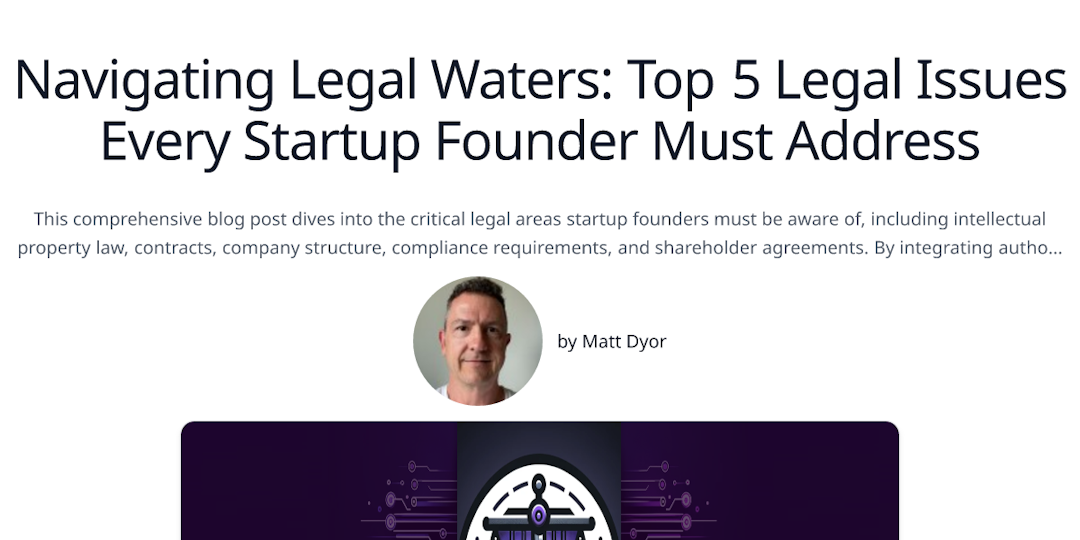In today's digital era, launching a startup website comes with its set of legal responsibilities to ensure compliance and safeguard your business. Whether you're running an e-commerce platform, a tech service provider, or a content aggregator, understanding the legal documents required on your website is paramount. These include the End User License Agreement (EULA), Privacy Policy, Terms of Service (TOS), and Cookie Policy. Here's a breakdown of what each entails and why they're vital for your startup's legal health.
1. End User License Agreement (EULA)
The EULA is crucial if your startup offers downloadable or cloud-based software. This legal contract between the software developer or publisher and the user stipulates the rights and restrictions regarding the use of the software. It often includes clauses on copyright, distribution rights, limitations on use, and liability disclaimers. Crafting a clear and comprehensive EULA can protect your intellectual property and mitigate legal risks by informing users of their rights and restrictions.
2. Privacy Policy
With data protection regulations like the General Data Protection Regulation (GDPR) ↗ in Europe and the California Consumer Privacy Act (CCPA) in the United States, having a Privacy Policy on your website isn't just good practice—it's a legal requirement. This document should detail how your startup collects, uses, shares, and protects user data. Transparency in your Privacy Policy not only ensures compliance with international laws but also builds trust with your users by showing your commitment to protecting their personal information.
3. Terms of Service (TOS)
The TOS, or Terms of Use, is the legal agreement between your startup and its website visitors or users. It outlines the rules and guidelines users must follow to use your service and includes sections on copyright, trademarks, account termination processes, and disclaimers of liability. A clear TOS can act as a protective layer for your business, mitigating the risk of legal disputes by setting clear expectations about the service provided.
4. Cookie Policy
A Cookie Policy is necessary if your website uses cookies—small pieces of data stored on users’ devices—to track browsing behavior or personalize the user experience. Under laws like GDPR, your startup is required to inform users about the use of cookies and obtain their consent. Your policy should detail what cookies are active on your site, what data they track, for what purpose, and how users can control their cookie preferences.
Why Are These Documents Essential?
- Compliance: Adhering to legal requirements helps avoid hefty fines and legal complications.
- Protection: Clearly defined terms protect your intellectual property and limit liability.
- Trust: Transparency regarding user rights and data handling builds user trust and credibility.
Crafting Comprehensive Legal Documents for Your Website
While generic templates offer a starting point, they often fall short of covering the specifics of your business model and the latest legal requirements. Seeking professional legal advice to tailor these documents to your startup's unique needs can save you from potential legal pitfalls down the line.
Understanding and implementing these key legal requirements on your website is the first step toward setting a solid foundation for your startup's online presence. If you're ready to ensure your website is legally compliant and want to protect your startup’s interests, scheduling a call ↗ with an experienced attorney can provide you with tailored advice and peace of mind.
Start your journey toward a secure and compliant online presence today. Your startup deserves the best legal protection.





















